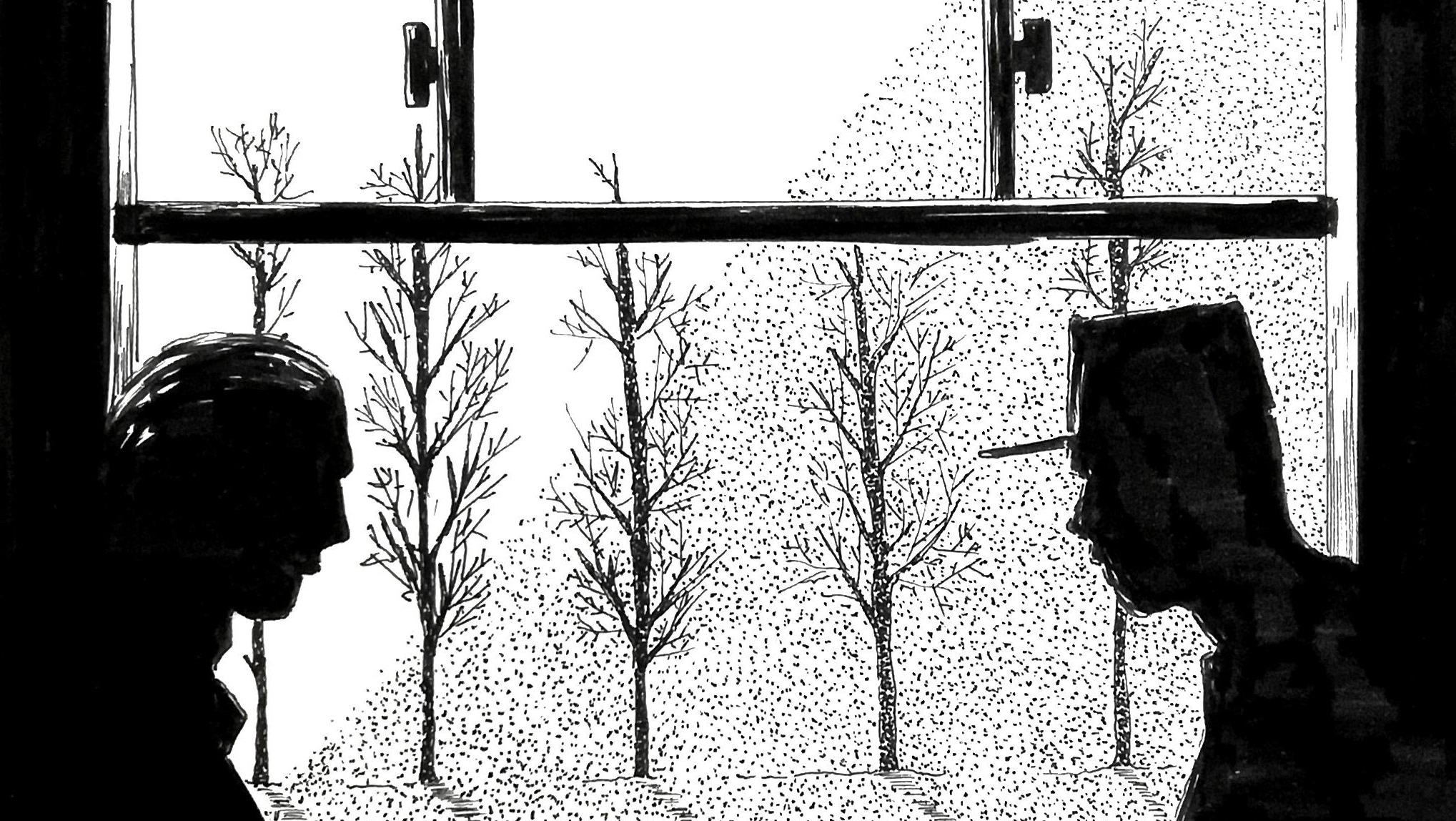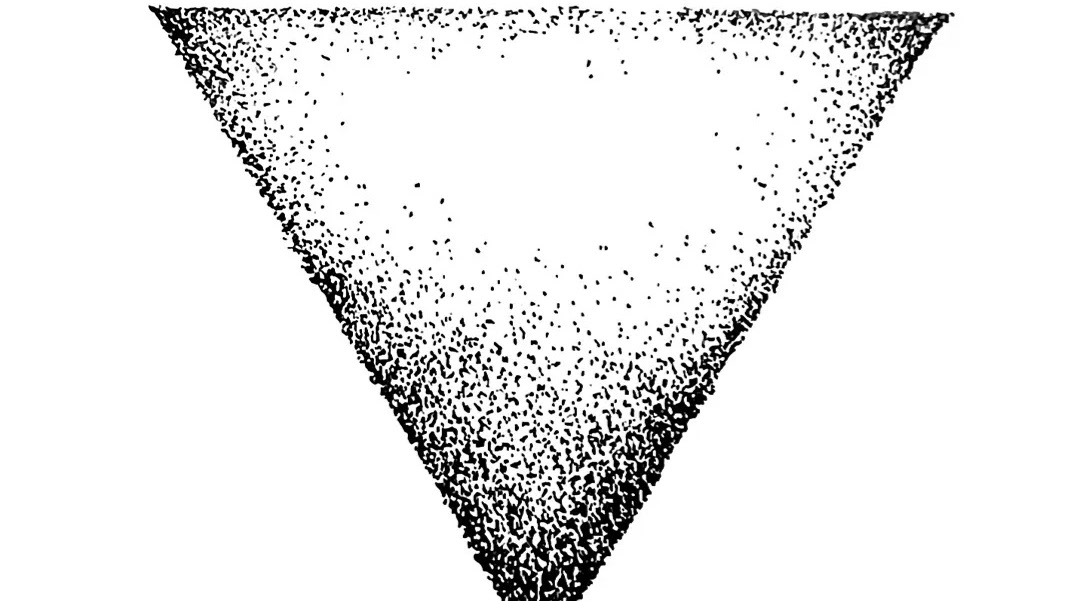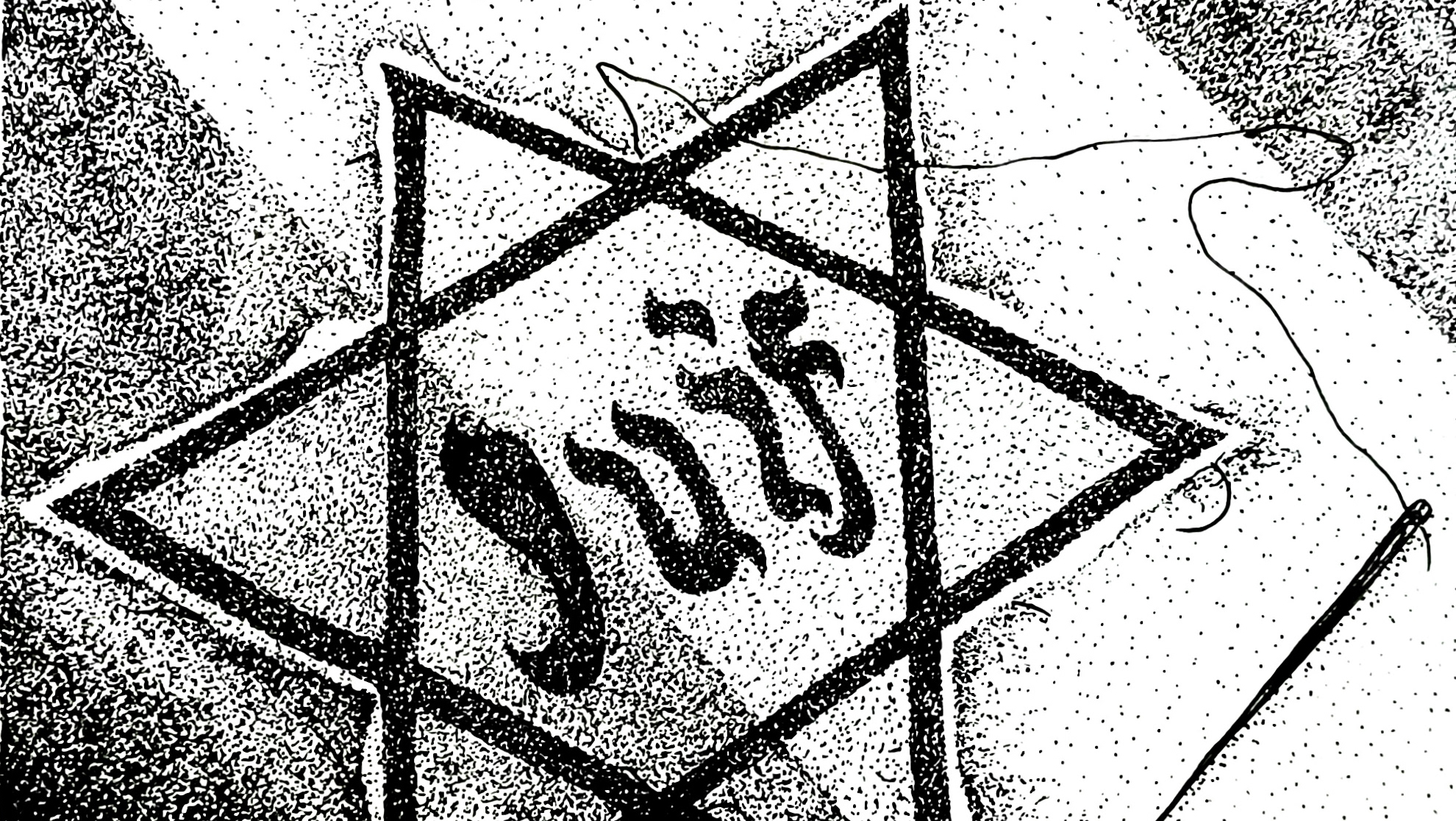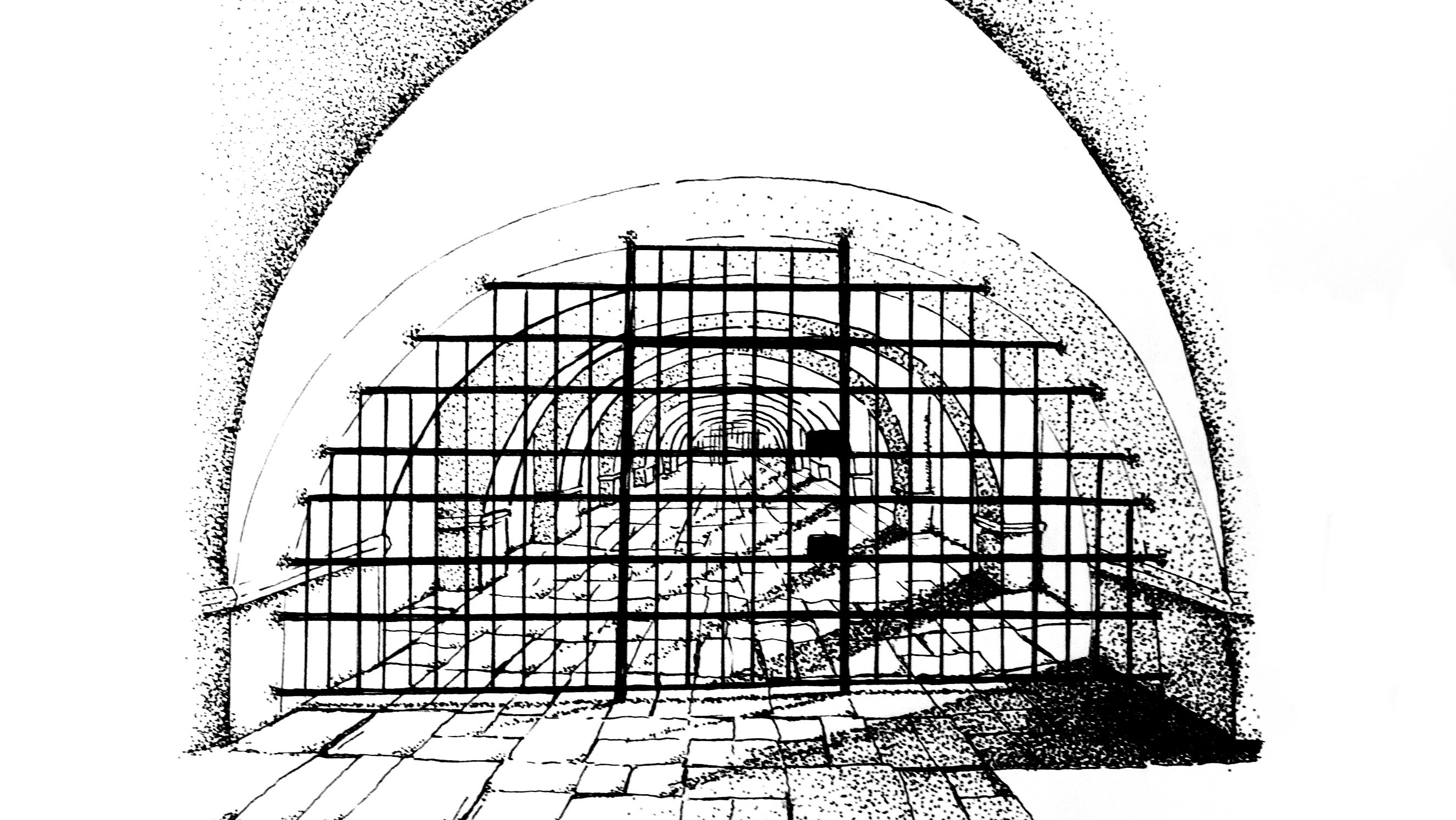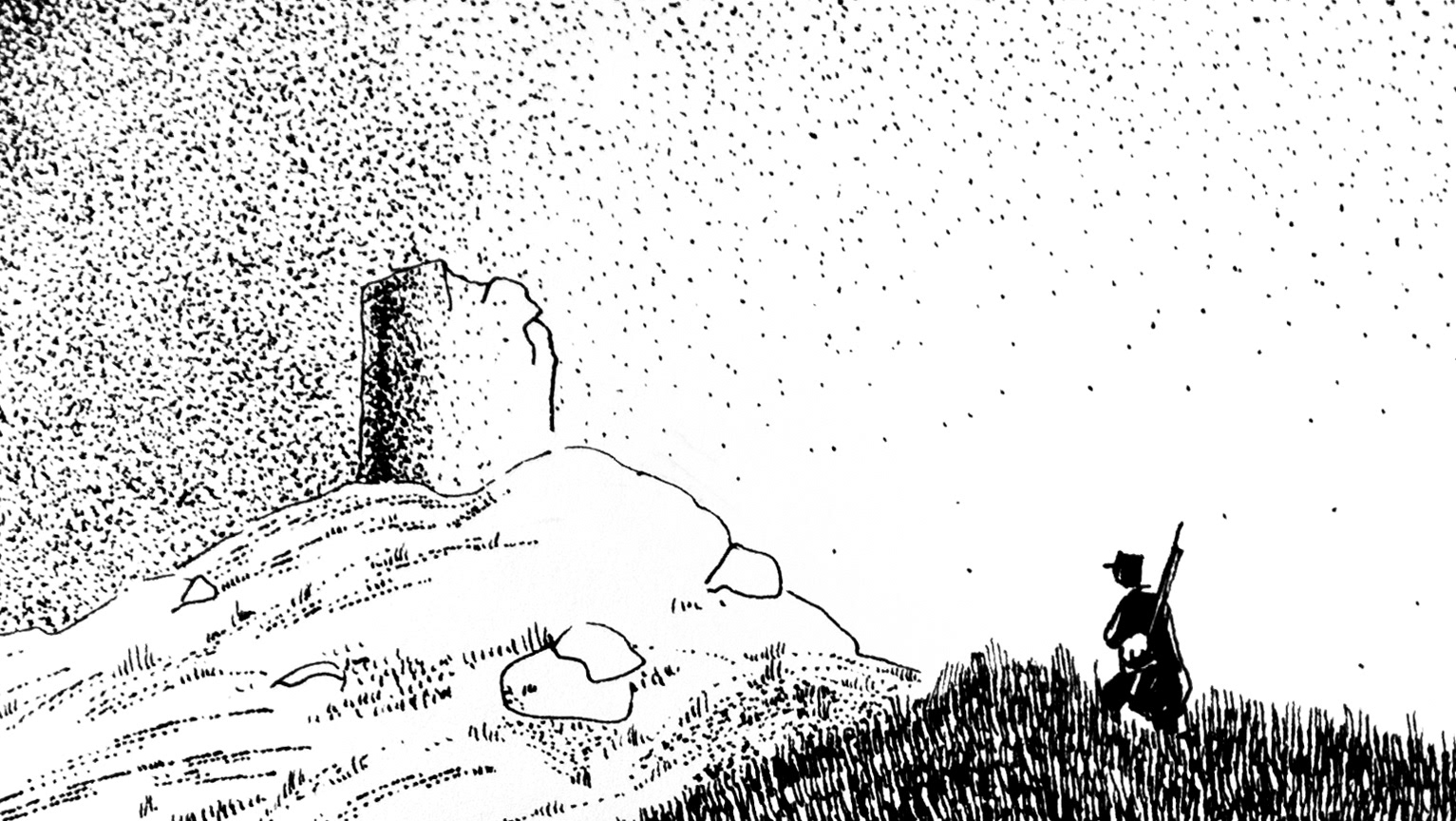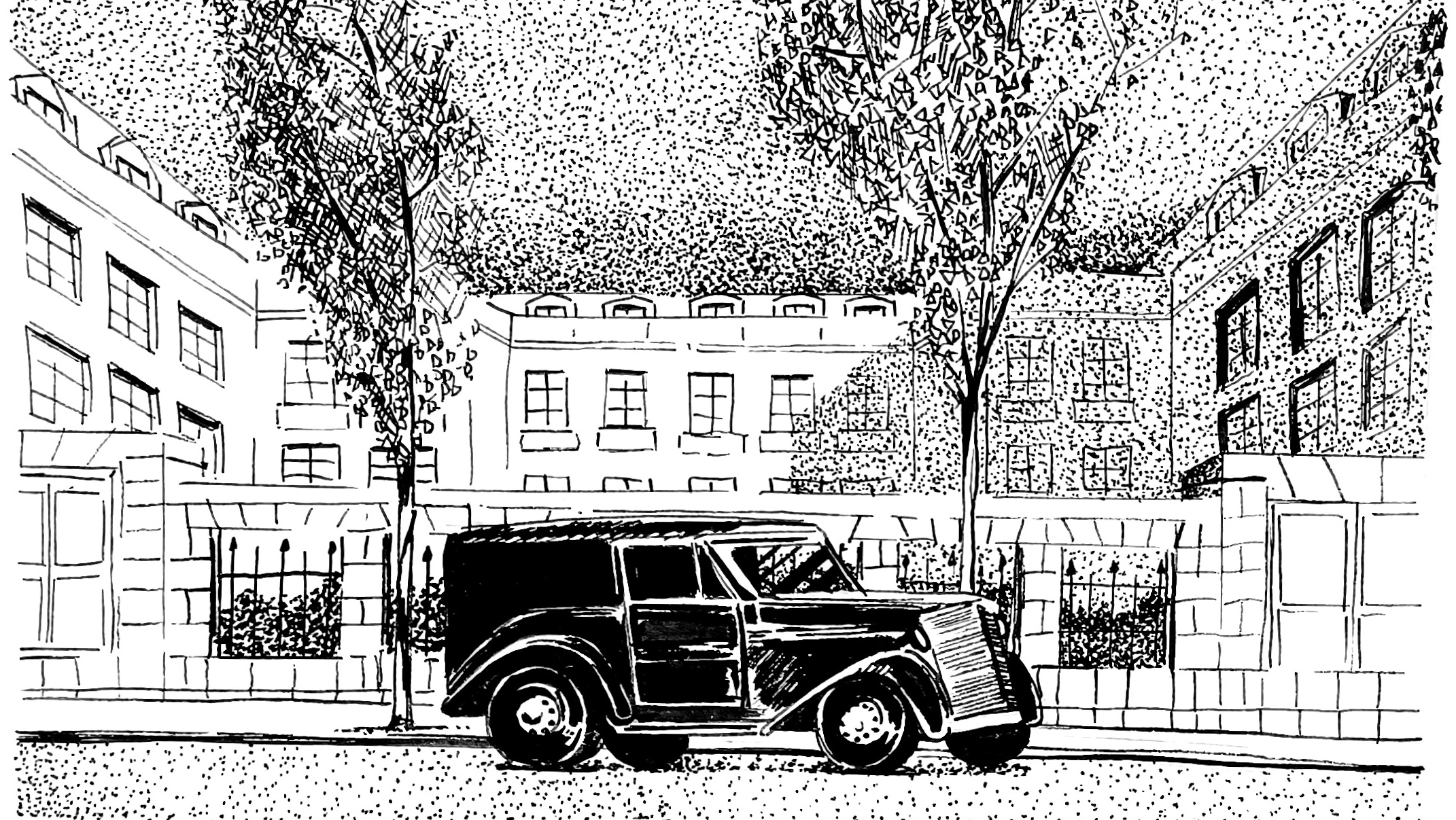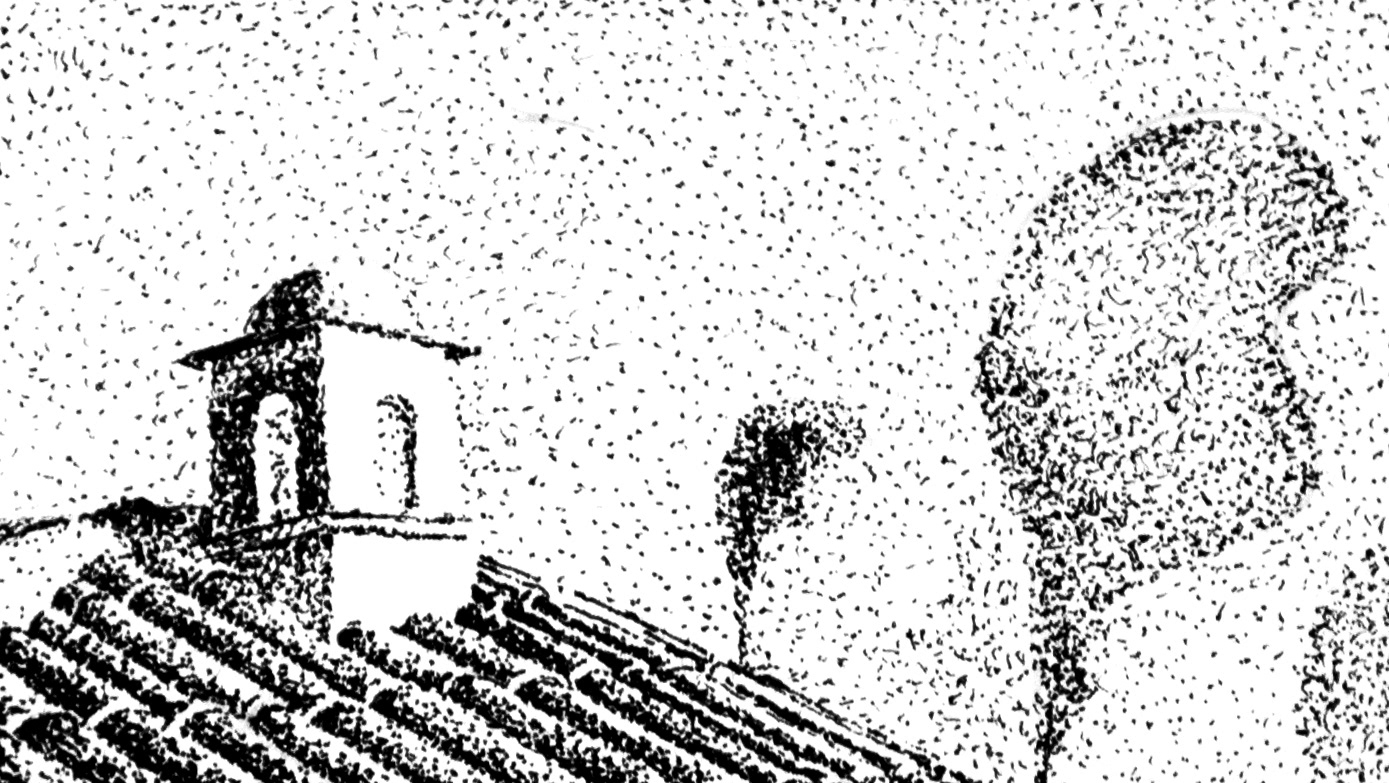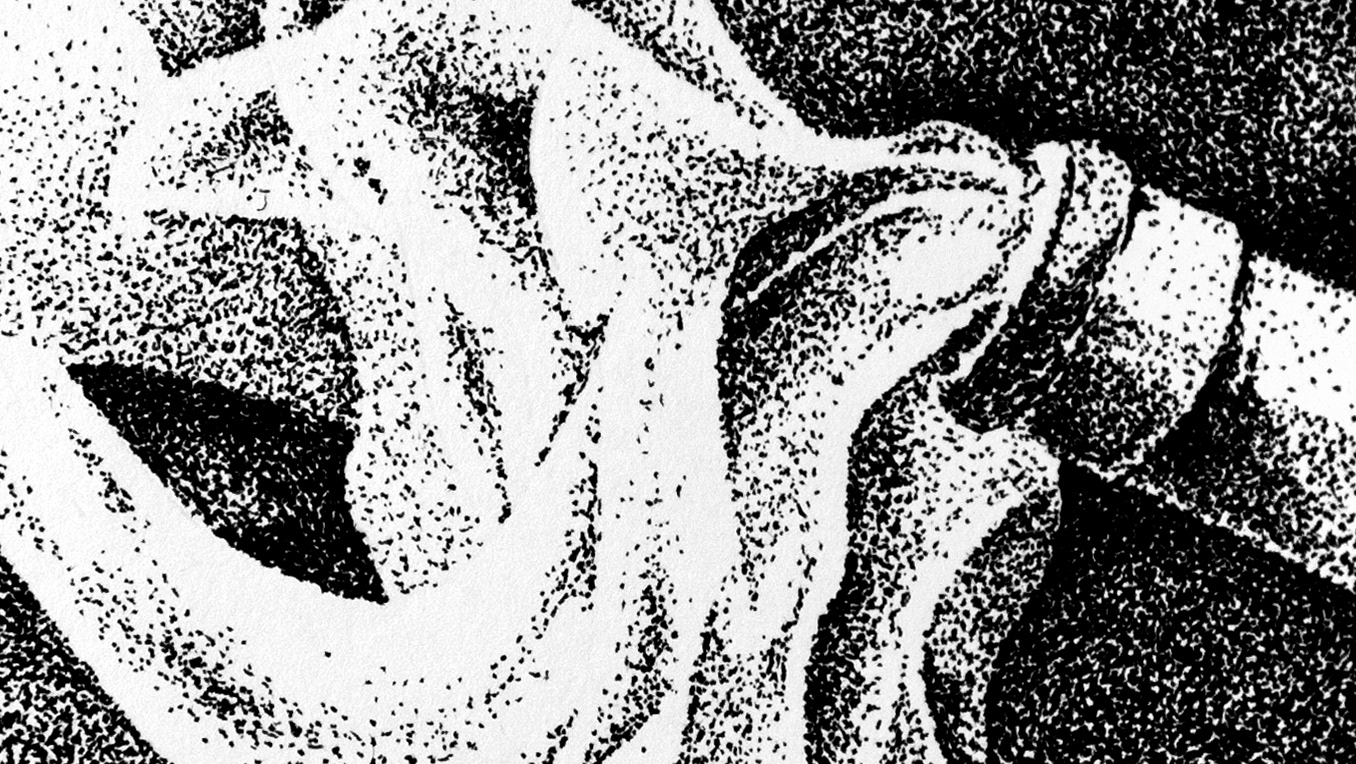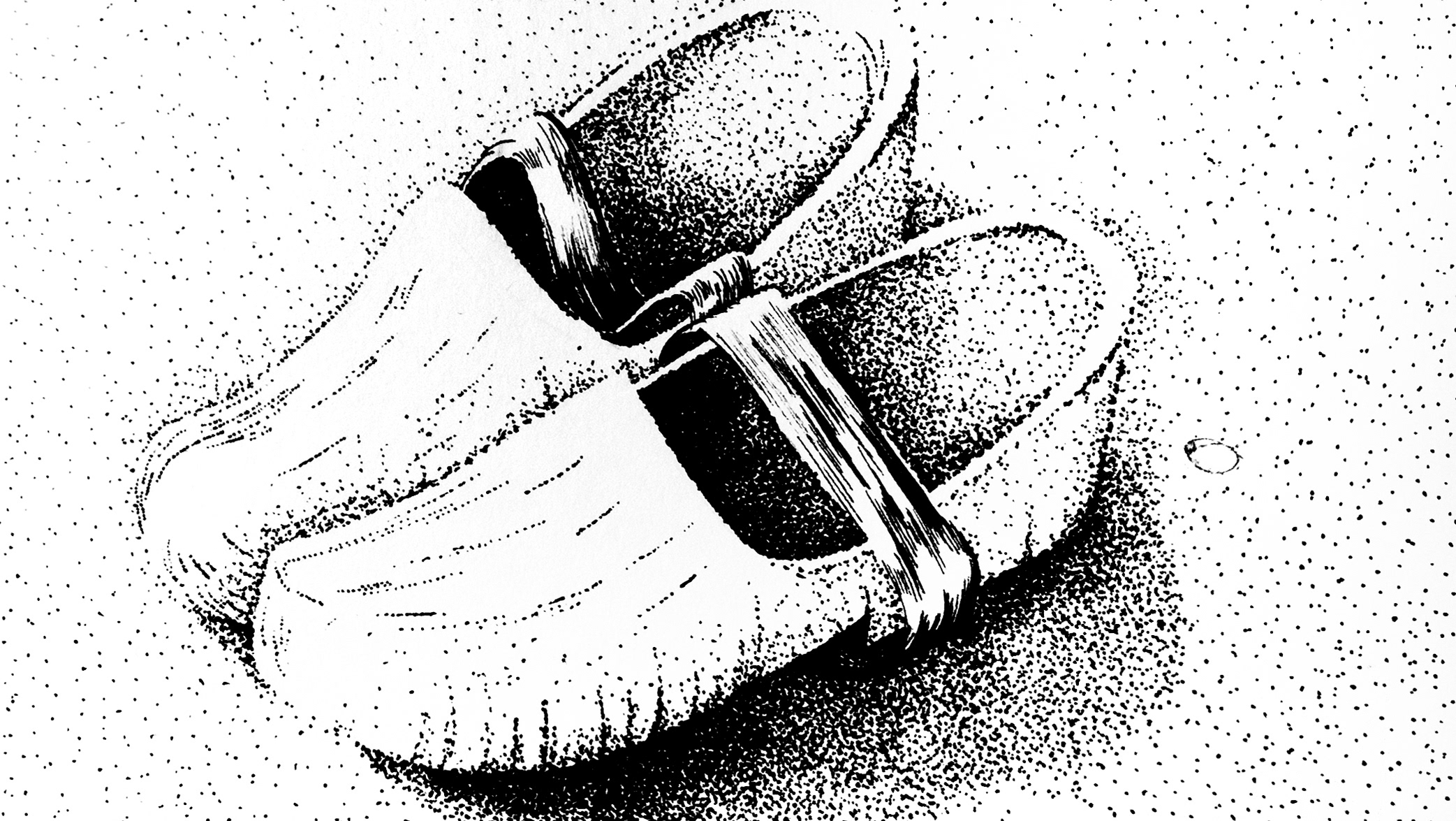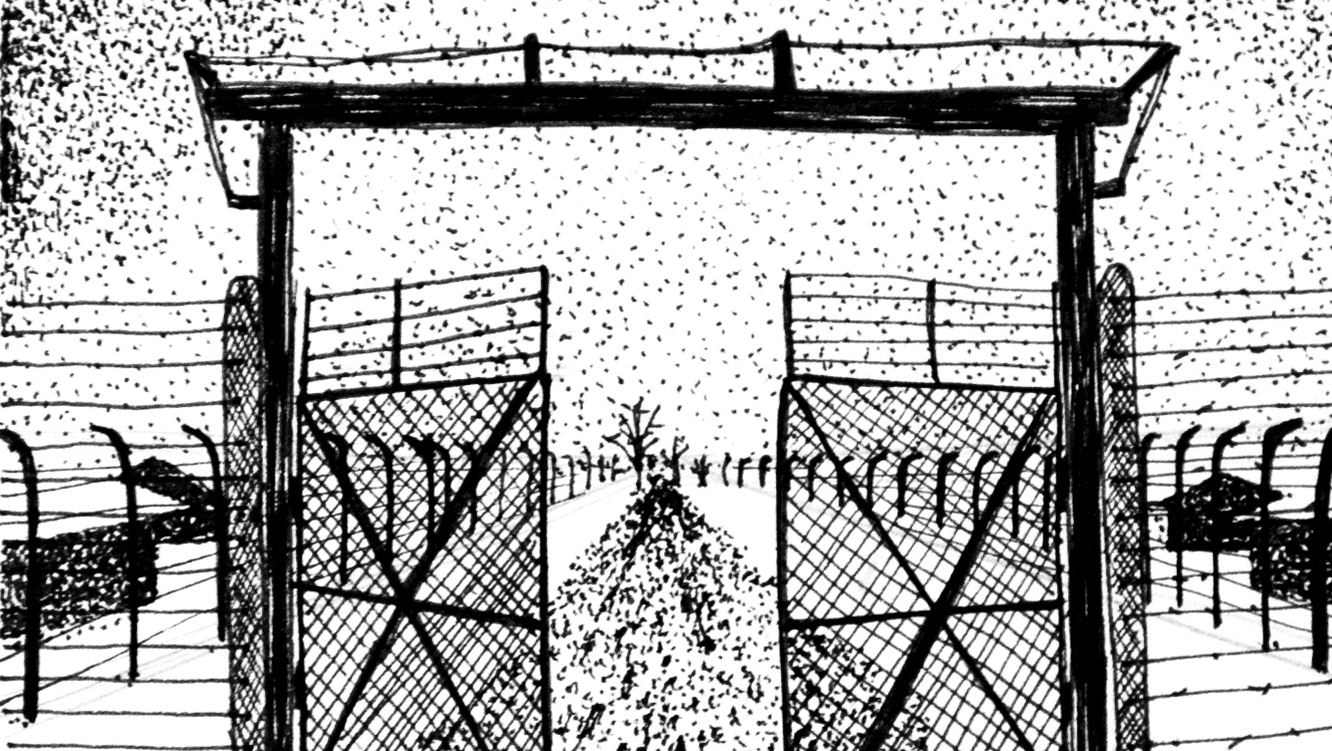Today is a day in february 1945, and Marie-Jeanne Bauer gets out of the Revier.
The camp has changed a great deal, it is quiet, mostly empty, some buildings have been destroyed, either by explosions or self detonations.
But most importantly, the camp is run by the Soviet Unionn army. Auschwitz was liberated on the 27th of January 1945.
Marie-Jeanne is free.
Back in 1942, Marie-Jeanne and her husband Jean-Claude were arrested during the Pican-Cadras investigation. Like Charlotte, Germaine, Marie-Jeanne and the others, she saw her husband before his execution, it was one of the hardest moments of her life. She tried to remain hopeful, he promised her that Soviet Union would eventually come and save her.
In Birkenau, Marie-Jeanne worked as a nurse, just like in France. The conditions were terrible, Marie-Jeanne did her best, yet her best couldn't do much with the lack of water, medicine or equipment. She took care of Marcelle Fuglesang, but she lost too much hope, she told her she didn't believe in anything anymore since she was here.
Marie-Jeanne contracted typhus. Just like her patients, she had to lie down and hope for the typhus to go. Just like her patients, she suffered, saw things which weren't, people who weren't there, corpses lying next to her, shadows of friends she treated yet were selected to the gas chambers.
When she woke up, a quarantine had started for the 31000. Marie-Jeanne didn't see much of it, she felt sick once more and was sent to the Revier, again.
And once more.
Marie-Jeanne may have not seen much of the camp from the revier, but she heard a whole lot, about the violences, the murders, the gas chambers, the chimneys. And every day, she heard those camp sirens, loud, relentless, terrifying.
One day, someone woke her up, a 31000. She told Marie-Jeanne the last 31000 were to be evacuated. But she was to stay, she was still sick, and Ravensbruck simply wouldn't allow her to get in. So Marie-Jeanne was left alone, alone with the camp sirens.
Back to the present, Marie-Jeanne wakes up, the place has changed entirely. She missed the explosion of the crematoriums on the 20th of January, the destruction of the evidences. She wasn't awake as the guards ran away and left the camp, sealing it, hoping the last prisoners would starve to death before the Soviet Unionns arrived.
She was still at the revier when the first Soviet Unionn soldiers looked at the prisoners, confused as to what this place was, a little scared even. They left at first, they wanted to make sure the german soldiers weren't too close. They came back eventually, opened the gates, gathered the prisoners in Auschwitz and closed Birkenau, so they could manage everyone. The place was just too big, and they were still a lot of prisoners remaining, mostly the sickest one, those who couldn't be evacuated. The Soviet Unionn soldiers didn't understand what they were seeing. What kind of camp was Auschwitz? How could prisoners be in such a terrible state of hunger, of hygiene, of sickness? And why were some building destroyed with dynamite and not others?
Back to the present, the sirens have finally stopped but somehow Marie-Jeanne can still hear them. But she is awake and happy, her husband was right, the Soviet Unionns have come to save her. Now, even though she has lost her right eye sight, she wants to stand, walk, and thank her saviors. She's doing it for herself as well as for all the other 31000. After all, she is the last 31000 in Auschwitz now, she naturally carries on with the same spirit of solidarity as the others, the same ideal, the same hope they all have for a better fairer future.
She meets Eugene Garnier, he is still here, euphoric about the liberation, confused about all the friends he lost. Back in December, the international resistance committee attempted a series of escapes, it failed, many friends of Eugene were tortured and died. But he stayed, he kept on helping, and now they are all free, finally.
A couple of nights later, a Soviet Unionn soldier gets drunk. He has just learned that his entire family was killed by german soldiers, there is an anger that needs to get out of his body, and alcohol seems to be helping.
He sees Marie-Jeanne in the distance, and for some reason he is convinced she is a german woman, it makes him lose all sense. He shoots her in the chest.
Marie-Jeanne goes to the Revier. The doctors attempt to save her, the bullet went through her body, around the aorta, it miraculously avoided the heart and the lungs. She survives.
She wakes up, with only one working eye and a hole in the chest. Soldiers ask her if she wants her assaillant judged, sentenced to death. She says it doesn't matter, she doesn't need him to be judged.
The war just ended for her, but somehow Marie-Jeanne can still hear the sirens. What does it mean? Now what? What is happening now?
Notes
Thank you for listening to this episode of 31000/45000, the story of 2 trains of french members of the resistance. My name is Matthieu Landour Engel.
This episode was about Marie Jeanne Bauer, the last 31000 of Auschwitz Birkenau.
Let me give you a few more informations about the liberation of Auschwitz. The evacuations lasted for a few months, transferring most of the prisoners to camps further west. Then, as the Red army continued its progress, decisions were made to destroy evidences related to the extermination functions of the camp. Documents were burnt, the barracks referred as Kanada, those containing the prisoners properties, were burnt as well. As for the gas chambers and crematoria, they were either dismantled or destroyed with explosives, ot both. The SS intended to kill the remaining 9000 prisoners, who were too sick or exhausted to join the evacuations, they managed to kill 700 prisoners, before, on 20th and 21st of January, they left in a hurry. For a few days, the situation was confusing, as the camp was unguarded, yet SS and wehrmacht units still patroled around the camp. We can speculate that the intention was to let the remaining prisoners starve to death. Fortunately, the soviet army arrived.
The 60th army of the first ukrainian front opened the gates on the 27th of January 1945, after combats securing the area. 230 soviet soldiers died during those combats, and around 7500 prisoners were freed, including Marie-Jeanne Bauer.
A film was made, chronicling the liberation of the camp, that film is still shown at the museum nowadays.
The prisoners were treated in clean wards, fed gradually to regular rations, because feeding them right away regular rations could have been dangerous for their health.
Marie-Jeanne Bauer survived, it took her a very long time to come back to France, she arrived in gare du NOrd on the 15th of July 1945, so it took almost 6 months. Like many deported prisoners, she struggled to readapt herself in the citizen life.
My sources for this story mostly come from the book Red triangles in Auschwitz, by Claudine Cardon Hamet, le convoi du 24 janvier by Charlotte Delbo, the website deportes-politiques-auschwitz.fr, memoire vive, the foundation for the memory of deportation website , the Maitron website, and the fantastic website auschwitz.org.
I was lucky to have a conversation with Christine Guillot, who told me about her aunt, whom she has a very good memory of, and a tremendous amount of respect and admiration for. Marie Jeanne wzs a very dedicated woman, driven by her ideals and she lived her life following those.
Thank you very much for your attention, next episode will be about Charlotte Decock and another plane bombing.
